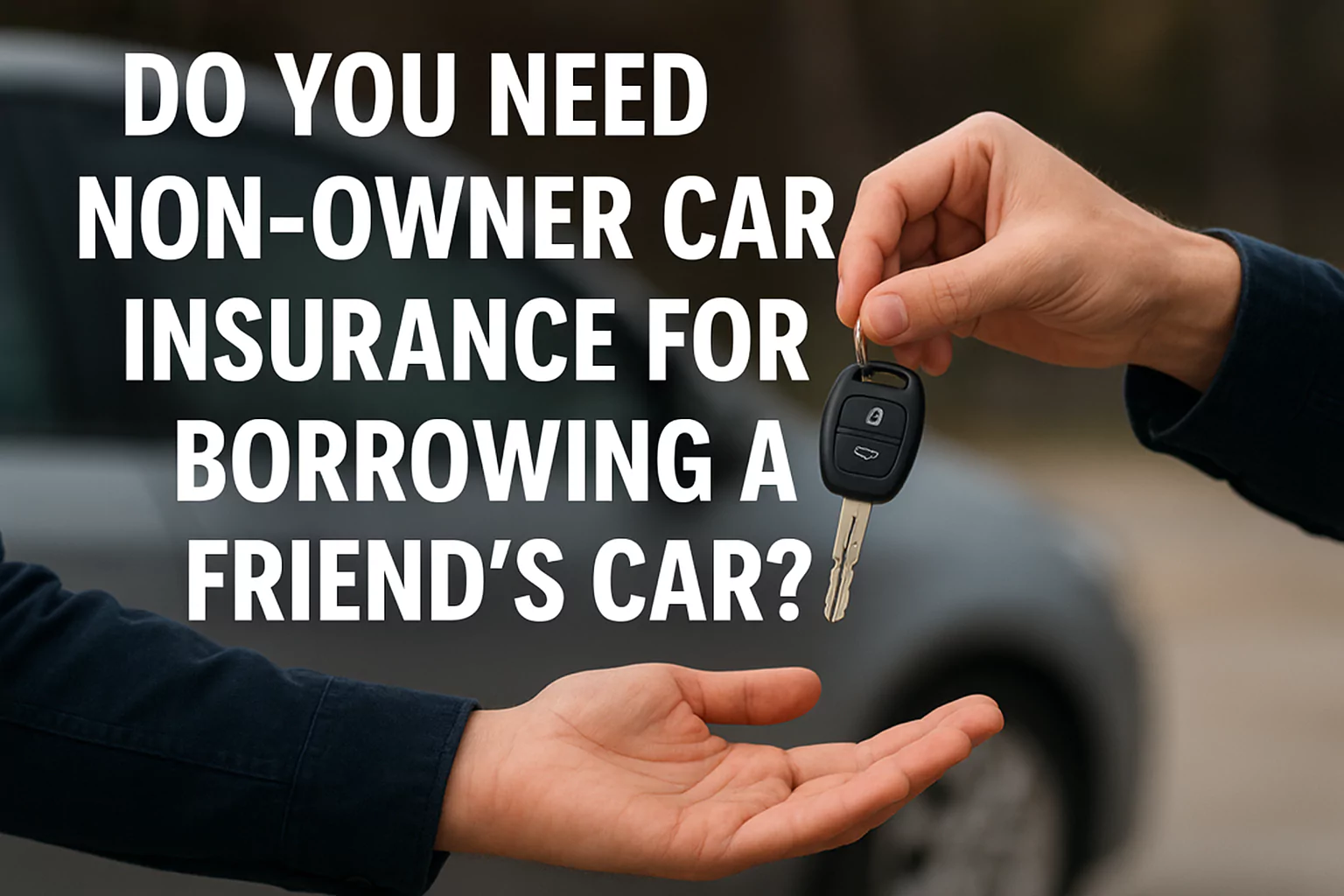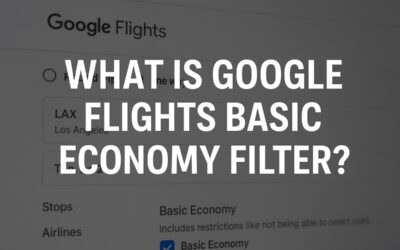Do You Need Non-Owner Car Insurance for Borrowing a Friend’s Car?

If you’re only borrowing a friend’s car for a few days or even a few weeks, you usually do not need non-owner car insurance – your friend’s car insurance will likely cover you as a permissive driver. However, non-owner car insurance can be useful if you borrow cars frequently, need liability coverage when driving vehicles you don’t own, or want continuous insurance coverage for legal or financial reasons.
This guide will explain everything you need to know about non-owner car insurance, when it’s necessary, when it isn’t, and what alternatives you may have.
What Is Non-Owner Car Insurance?
Non-owner car insurance is a special type of liability-only policy designed for people who don’t own a car but still drive occasionally. Unlike a regular auto policy, it doesn’t cover physical damage to the car itself – it only provides liability protection if you cause injury or property damage while driving a vehicle you don’t own.
In short: it’s insurance for the driver, not the car.
Does My Friend’s Insurance Cover Me?
Most personal auto insurance policies include something called “permissive use” coverage. This means that if your friend gives you permission to drive their car, you’re generally covered under their policy. Here’s how it typically works:
- Primary coverage: Your friend’s insurance is the first line of coverage in case of an accident.
- Your responsibility: If damages exceed their policy limits, you may be financially responsible for the remainder.
- Exclusions: If your friend’s insurer has strict rules, such as excluding non-household drivers, you might not be covered.
So, for a one-time or short-term loan of a car, your friend’s insurance should usually protect you.
When Non-Owner Car Insurance Makes Sense
While you don’t usually need non-owner car insurance for borrowing a car occasionally, there are situations where it’s a smart move. You might need it if:
1. You Borrow Cars Frequently
If you often borrow cars from multiple friends or relatives, having your own non-owner policy ensures you’re always covered.
2. You Rent Cars Regularly
Some non-owner policies extend coverage to rental cars, which can be cheaper than buying rental company insurance every time.
3. You Need Proof of Insurance
If you don’t own a car but want to keep continuous coverage (to avoid gaps that raise future premiums), a non-owner policy is helpful.
4. Your Friend Has Minimal Coverage
If their liability limits are low, you may want extra protection in case of a serious accident.
5. Legal or Work Requirements
Some states, courts, or employers require drivers to show proof of financial responsibility, even if they don’t own a car.
When You Probably Don’t Need It
On the other hand, there are many situations where non-owner car insurance is unnecessary:
- Borrowing a car occasionally for errands or emergencies.
- Driving a household member’s car if you’re already listed on their policy.
- Short-term borrowing where rental or borrowed-car coverage applies.
- Using credit card rental coverage for short rental periods (in some cases).
In these situations, it’s better to rely on your friend’s or the rental company’s coverage instead of buying a separate policy.
What Non-Owner Car Insurance Covers
It’s important to know the limits of this type of policy. A typical non-owner car insurance policy covers:
- Bodily injury liability – medical expenses for injuries you cause to others.
- Property damage liability – repair costs for damage you cause to another vehicle or property.
- Uninsured/underinsured motorist coverage – if you’re hit by a driver without enough insurance (varies by state).
What it doesn’t cover:
- Damage to the car you’re driving.
- Your medical expenses (unless paired with medical payments coverage in some states).
- Business or commercial driving.
Costs of Non-Owner Car Insurance
Non-owner policies are usually cheaper than standard auto policies since they don’t cover a specific car. On average, you might pay $200–$600 per year, depending on your state, driving record, and coverage needs.
Factors that affect cost include:
- Your driving history.
- State insurance requirements.
- Liability limits you choose.
- Whether you add optional coverage like uninsured motorist protection.
Alternatives to Non-Owner Insurance
If you’re considering non-owner insurance, you may want to explore alternatives first:
- Relying on your friend’s policy when borrowing their car occasionally.
- Buying rental car insurance directly from the rental company if you only drive rented vehicles.
- Using credit card rental coverage if your credit card provides it.
- Adding yourself as a named driver on a household member’s policy if you regularly use their car.
How to Decide If You Need It
Here’s a simple decision checklist:
- Do you borrow cars often or just occasionally?
- Do you need proof of continuous insurance for future premium savings?
- Does your state or employer require it?
- Does your friend have sufficient liability coverage?
If you answer “yes” to most of these, a non-owner policy may be a smart investment. If not, your friend’s policy may already give you enough protection.
Final Thoughts
You generally don’t need non-owner car insurance for borrowing a friend’s car once in a while – their policy usually covers you. However, if you borrow vehicles frequently, rent cars often, or need continuous coverage, non-owner car insurance can provide valuable protection.
Think about how often you drive, who owns the cars you use, and whether liability coverage is enough for your needs. In many cases, a quick check with your friend’s insurance provider can give you peace of mind before you get behind the wheel.









